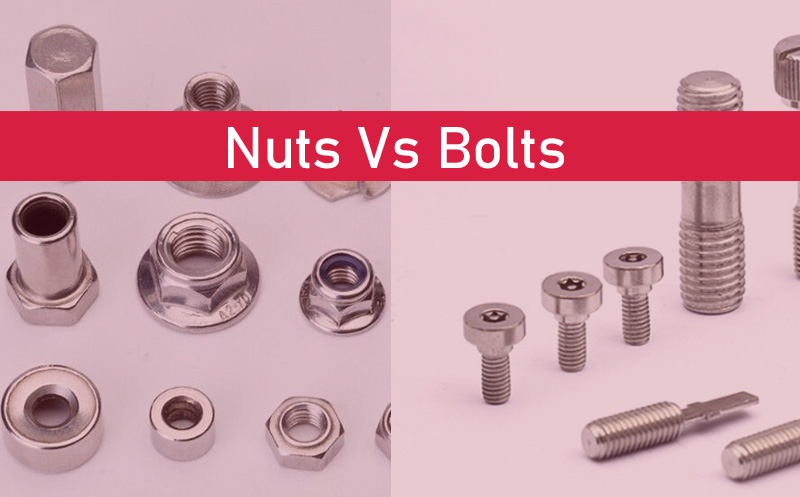When think about the parts that hold our world together, nuts and bolts may not be the first things that come to thought. Still, these simple yet vital components play a crucial role in a variety of applications, ranging from the furniture we use to the vehicles we drive. Understanding the variety and functionality of nuts and bolts can greatly enhance our ability to tackle DIY projects, take on home improvement tasks, or even carry out regular automotive repairs.
In this detailed guide, we will investigate the varied types of nuts and bolts available, delving into their specific applications and benefits. Whether you are a seasoned builder or a curious novice, this guide aims to equip you with the information you need to choose the suitable fasteners for your tasks. Let us delve into the fascinating world of nuts and bolts and discover how these humble components are more important in our daily lives than we might think.
Understanding Bolts and Nuts
Fasteners and bolts are essential fasteners used extensively in multiple applications, from common household tasks as well as commercial applications. A fastener is generally a elongated cylindric piece of metal with grooves running through its body, that enables it to be fastened into a connector. The connector, typically shaped like a hexagon in form, fits onto the threaded tip of the bolt, creating a stable bond when tightened. This straightforward yet functional system is vital for joining elements as a unit, ensuring stability and strength in a large scope of designs and mechanisms.
Different kinds of nuts and nuts serve distinct purposes, and understanding their unique features can significantly improve your project outcomes. For example, hexagonal bolts are often employed for general construction, while carriage fasteners are ideal for securing timber to wood or metal. Lag fasteners are specially made for heavy-duty jobs, often applied in construction or supporting settings. By choosing the suitable kind, you can enhance the reliability of your assemblies and avoid likely issues.
Moreover, the materials and finishes of fasteners and bolts are key factors to consider. Stainless offers high corrosion resistance, which makes it suitable for external uses, while bronze provides effective transfer in electrical projects. https://key-siegel.hubstack.net/the-way-nuts-and-bolts-support-the-environment-unified -coated and galvanized choices are made to combat rust and degradation, extending the longevity of the connectors. Each option adds to the complete durability and performance of your connections, and recognizing the differences can help you formulate knowledgeable options as you handle different tasks in your DIY or commercial endeavors.

Types and Applications
When it comes to selecting fasteners for assignments, comprehending the various kinds of nut fasteners and bolts and their specific uses is essential. For example, hex bolts are among the most widely used fasteners in building, due to their versatility and great strength. They are perfect for securing components in high-load applications, while carriage bolts possess a rounded head and are commonly used in timber projects. These differences allow for custom solutions based on the medium and needs of the project at play.
During car repairs, certain kinds of nut fasteners and bolt fasteners are vital for securing safety and efficacy. For instance, flange nuts offer a greater bearing surface that distributes the load and reduces the risk of loosening, making them perfectly fitting for active environments found in vehicles. Similarly, lock nuts are intended to prevent self-loosening, contributing an augmented layer of protection to key components within the vehicle field. Grasping these differences helps technicians choose the appropriate fasteners for different applications.
In the case of DIY home renovation projects, the selection between wood and metal fasteners can greatly affect the outcome. Wood screws often demand specific screws that accommodate the material's characteristics, while metal projects gain from sturdier bolts with increased tensile strength. When planning a project, it’s essential to consider both the surroundings and engineering needs, guaranteeing that the chosen nuts and bolts will perform consistently over time. Acquaintance with these types and applications not only boosts project success but also encourages a deeper appreciation for these fundamental components in daily life.
Materials and Specialty Fasteners
When choosing nuts and bolts, the substances they are composed of play a key role in their performance and application. Metal fasteners offer strength and resilience, making them ideal for a wide range of projects. For environments prone to corrosion, corrosion-resistant fasteners present a dependable choice due to their resistance to rust and deterioration. Brass and titanium are also common alternatives, each bringing unique properties such as lightweight applications and excellent corrosion resistance, respectively. Understanding these materials helps ensure the durability of your projects.
Specialty fasteners are designed for specific applications and can make a considerable difference in performance. Security-enhancing nuts and bolts, for example, enhance security by preventing unauthorized access to assemblies. Head Screws are another distinct option, providing extra friction to resist loosening over time, which is particularly useful in vibration-prone environments. Knowing when to use these specialized fasteners can assist optimize the effectiveness of your construction or repair work.
Other specialized fasteners include expanding bolts and anchor bolts, both essential for securing fixtures to various substrates. Expansion bolts expand once inserted, providing maximum holding power, making them ideal for heavy loads. Foundation bolts play a crucial role in foundation work, ensuring stability and support for structures. By selecting the appropriate specialized fastener for your needs, you can enhance the overall quality and security of your projects.
